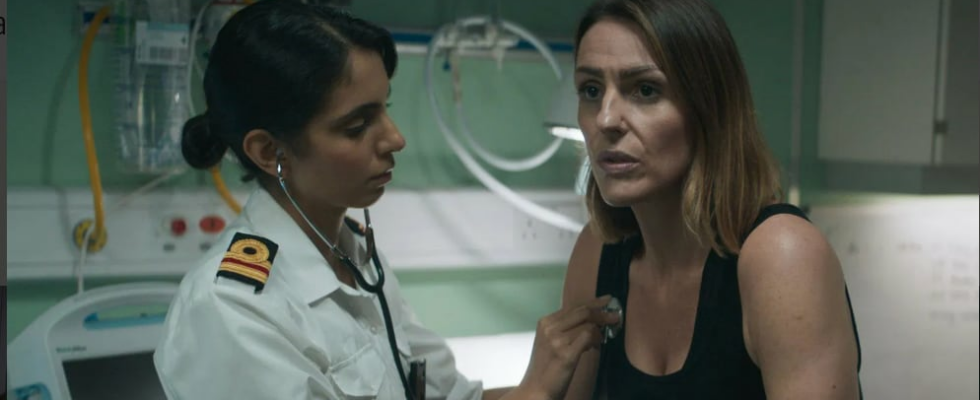The submarine film is a genre that I really enjoy. Being stuck 20,000 or 100,000 leagues under the sea is my favorite anxiety. However, I know how to swim, I even did scuba diving and everything. But I don’t know anything more fun than finding myself in a movie theater aboard a submarine in distress. As soon as there start to be pressure problems with the needles moving around, I feel the dizziness of the depths dripping down my arms. Besides, to be frank, in terms of torpedoes, I don’t find that nuclear power adds much since in any case, we’re all going to die like rats. Right, Harry? You are right, Admiral.
According to my favorite encyclopedia, more than 150 submarine films were made in a century of cinema. And that’s without counting the 120 episodes of Irwin Allen’s series, Journey to the bottom of the sea: “– It’s incredible, what pressure! And it increases from one eruption to the next! Harry, you are going to dive and take samples. – You should wait… What if there is danger? – Don’t So don’t say stupid things, the eruptions never last more than a minute or two. I need these samples right away. You’ll never be a scholar: you have to be daring – I know. ‘a wife, let’s see. – That’s something I have nothing to complain about.”
Flashback Conflict
But let’s come to Vigil, made sixty years later, and broadcast on Arte: a woman (Suranne Jones) a police commander, it smacks of forced originality, but when we see her being flirted with by her lieutenant (Rose Leslie), we wonder in which police station we fell. Complication: the commander is all the less keen on the thing as she has just lost her husband in an accident aboard a car which ended up at the bottom of the water. The commander managed to save her daughter from drowning, not her husband who she saw die, stuck drowned in the car, impossible to open the fucking door. And his boss who finds nothing better to change his mind than to send him into a nuclear submarine where a spy in the pay of the Russians has embarked and is constantly sabotaging the ship. Admit that she is not psychologically ready to face the situation. As a result, every time she takes a blow to the head, the commander gives us a flashback to her husband’s fatal accident, two or three times in each episode.
It is also through flashbacks that we understand that after having given in to the consoling advances of the madly in love lieutenant, it must be said that she is super pretty, the commander broke up in an incomprehensible way; resilience was not mature. She grimaces at her incurable grief throughout the six episodes, it’s heavy. Fortunately, the handsome guy in Putin’s pay hits her in the back of the head and shoves her into the torpedo tube where she will die, that’s for sure. There, we are treated to a real war of flashbacks: the car accident against the happy moments with the pretty lieutenant.
Other than that, I liked it, but I’m sure that if I cut out this corny love story, I would have loved this series. When I realized that there was a second season, I told myself that our two policewomen were not going to be able to save the planet from a nuclear war a second time. But curiosity pushed me to go and see. I was right to be worried. We see them both in the front of their police vehicle, patched up, as cheerful as finches, on their way to a new crime scene: a crazy drone has just massacred half of the general staff of an emirate Arab. The writers got rid of what was best about the first season: the submarine, and they kept what was the best: the pretty lieutenant is pregnant. They are going to have a child. So yes, definitely, the police are full of mischief.
.
